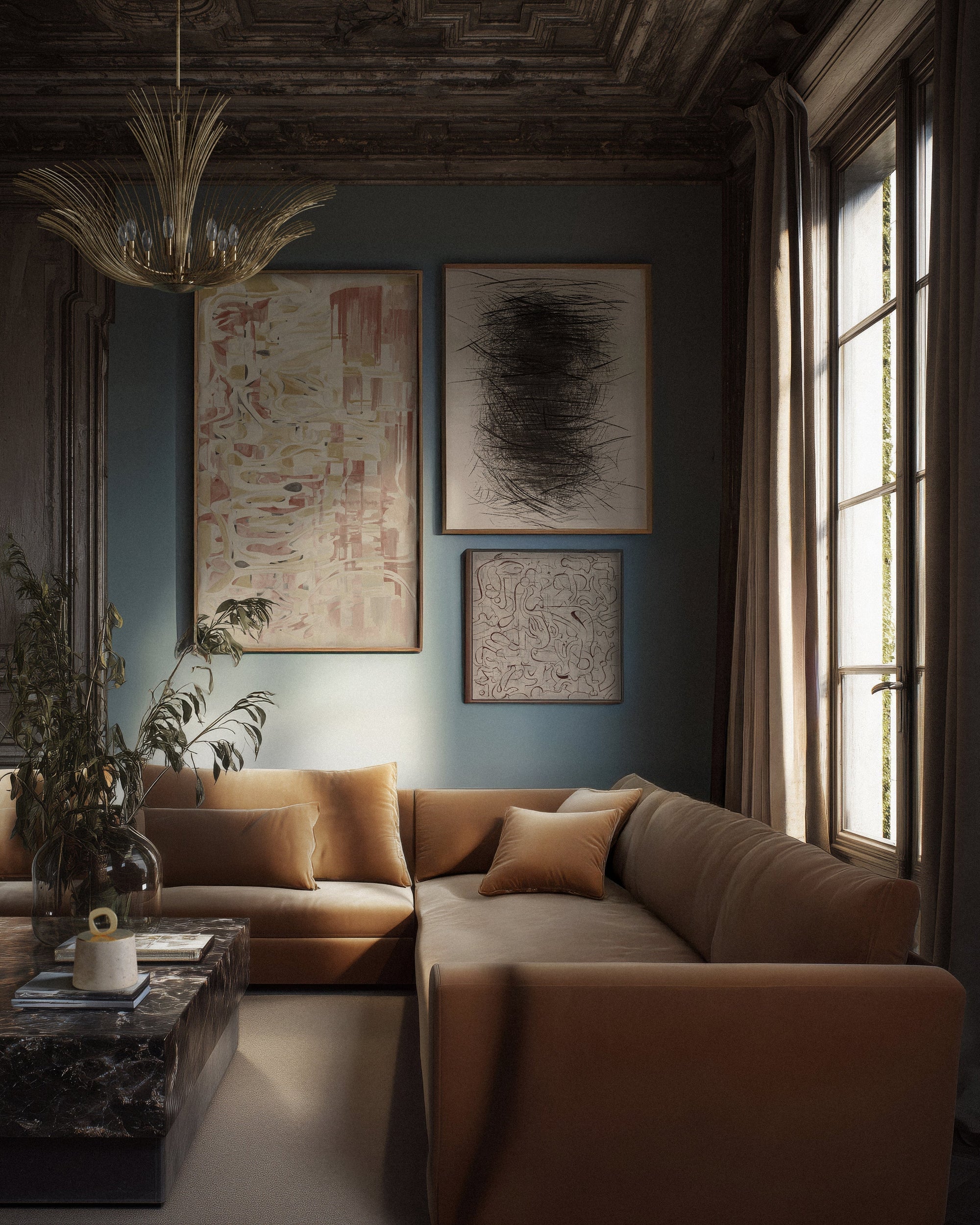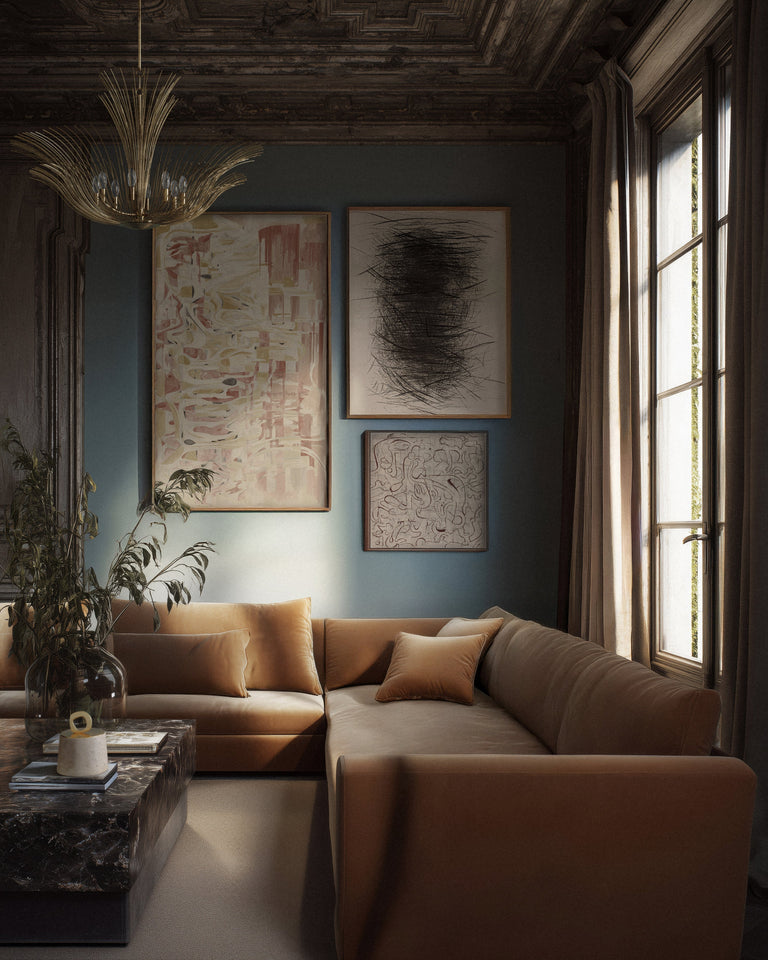
What Lighting Teaches Us About Design
Lighting, in a well-thoughtfully designed space, is much more than just providing light; it conveys intent. It portrays the coarseness in plaster, the inviting tones of wood, and the distinctive veining of marble and showcases subtle interactions between different materials. More than simple ornamentation, intentional lighting becomes an architectural feature that contours and conveys feeling through environment.

Learning from the Past
Heritage-informed design requires both restraint and understanding of which materials work with light: brass, linen, frosted glass, and hand-troweled plaster. Today's designers honor this heritage while advancing it, marrying traditional craftsmanship with refined technology. LED-powered modern plaster sconces or alabaster pendants retain timeless style. Handcrafted lighting fixtures celebrate artisan techniques passed through generations, from hand-troweled finishes to hand-forged metalwork.
Design lesson: True modernity refines history rather than rejecting it.

The Rise of Sculptural Simplicity
Lighting is now about form; sculptural lighting fixtures have become expressive functional art. Heavily influenced by mid-century modern lighting and Art Deco lighting fixtures, these pieces soften lines through natural finishes, alabaster, patinated brass, and ceramic provide improved durability and unique character. The result is architecture that evokes emotion. Designer lighting fixtures like large chandeliers transform from mere illumination into commanding focal points that define entire rooms.
Design lesson: Choose pieces with staying power; a sculptural light should appear discovered, not designed.

Material Sincerity and the Aesthetics of Diffusion
Lighting design is moving increasingly toward choosing materials with texture, like rattan, linen, plaster, and stone, that diffuse rather than reflect light. The result is softer, more atmospheric light. Finish matters as much as form; burnished brass brings warmth to modern geometry, while aged iron grounds sculptural pieces in earthiness. Both finishes mature gracefully, rewarding the patience of heritage design.
Design lesson: Lighting is about tone; the material shapes visibility and mood.

Layering Light with Intention
Well-designed homes use shall use purposeful layers of light: a lamp, a sconce or a pendant; each for a specific need. Today, excellent design puts together ambient, task, and accent lighting in a well-balanced way. Ambient sets the mood, task aids function, and accent draws attention to features. Luxury lighting fixtures, particularly large chandeliers, often serve as a stunning focal point that marry ambient and accent lighting, adding elegance and dimension to a room. Purposeful layering creates harmony.
Design lesson: Focus on rhythm, not even brightness.

The Modern Heritage Mindset
Designing lighting from a heritage perspective means making lights that last a long time and get better with age. It’s about choosing strong natural materials like brass or stone that don’t break down but instead look even nicer as they age. The shapes should fit easily into a room, looking simple from far away but special when you look closely.
Valuable tools, advanced controls, adjustable LEDs, and emerging technologies do not change this core design philosophy: human experience. At its best, light optimizes engagement with material qualities, craftsmanship, and sensory well-being.
Design lesson: Innovation should stand in service, not supplant.

A Final Reflection
Lighting shapes the atmosphere in a room and informs us about proportion and presence. When done well, it enhances the experience without calling attention to itself. Designing with light considers not only appearance but also how it feels to inhabit the space. Handcrafted lighting fixtures chosen from a heritage perspective grow more meaningful with time, becoming part of a home's story. This is lighting with intention, permanence, and soul.
Recent Edits



